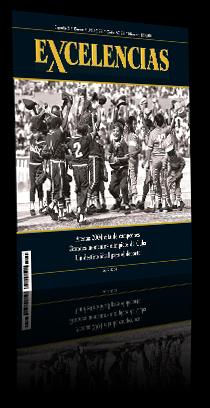Baseball is Cuba’s National Pastime
It never crossed Cuban Nemesio Guillot’s mind that the day he brought baseball implements from the U.S. to his homeland, he was sowing the seeds of what eventually panned out to be the passion of millions of islanders in just a few years.
Mr. Guillot, at the time a college student in America, acquired such a liking for the game that he decided to take it back to Cuba in 1864. The popularity of baseball caught on so rapidly in the Cuban people that the Spanish rulers banned it altogether under the premise that it was “an anti-Spanish, insurgent and pro-American practice that triggers enmity towards Spain.”
On December 27, 1874, the game of baseball began to be officially played in Cuba. The first game, pitting a local ball club against a Havana team, took place at the Palmar de Junco Stadium in Matanzas. The visitors routed past the home team 51 to 9.
Sports writers at the time reported the three homeruns whacked by catcher Esteban Bellan, a man who had recently come back from the States where he had polished up his playing style in the then fledgling Major League Baseball camps. Mr. Bellan had lived in America from 1867 to 1874 and played for the Morrisania Union, the Union of Lasinburg and the Haymakers Club of Troy.
The first U.S. professional league came into being in 1871: the National League, where Mr. Bellan played until 1875. On that same year, Mr. Bellan decided to return to Cuba to spread the game of baseball in his native island, despite having signed a contract with the New York Mutuals.
Cuban championships soon started to lure Americans. Time and again, they sent out different teams to play on the island nation, including several Chicago ball clubs, the Philadelphia Athletics and an All-American squad.
Baseball Patriots The 1895 Independence War cut off the proliferation of baseball for quite some time as some on-the-field stars joined the army of Cuban freedom fighters.
Ricardo Cabaleiro –one of the first Cuban ballplayers ever to hit three homers in a single game- was a captain in the army led by General Antonio Maceo. Emilio Sabourin, both a player and the head coach of the Havana ball club, was detained by Spanish authorities during the course of the Independence War.
Jailed in Cuba and later deported to Ceuta, Mr. Sabourin met Juan Gualberto Gomez, one of Jose Marti’s aides, in prison. From that moment on, Sabourin became a active advocate for Cuba’s independence. This is what Juan Gualberto Gomez once had to say about Mr. Sabourin: “He gave me the impression that he loved three things in the same breath in his lifetime: his family, his homeland and baseball.”
As Cuba broke free from the Spanish colonial rule, the game of bats, balls and gloves got pumped up by the boosting participation of Negro players. Blacks had been sidelined as a result of heavy racial discrimination on the island, even though slavery had been abolished in 1886.
Great ballplayers came up like daisies all across the island. The name of Jose de la Caridad Mendez, a man who could even beat MLB teams in U.S. soil, was a case in point.
In 1906, Martin Dihigo (nicknamed The Immortal) made trailblazing history of his own in Cuba’s national pastime as he could play safely and elegantly in all nine positions.
Mr. Dihigo performed in Mexico, Venezuela and in the U.S. Negro Leagues. He became the first Latin American ballplayer ever to be inducted into the American Hall of Fame in Cooperstown.
Athens in the Crosshairs Eight teams will hit the ballpark in the Greek capital with their sight locked on the Olympic gold. Three teams from Europe (Greece, the Netherlands and Italy), two from Asia (Japan and Chinese Taipei), two from the Americas (Cuba and Canada) and one from Oceania (Australia) will be there. The 2000 champion, the United States, didn’t make the grade during the 2003 pre-Olympic trials in Panama.
Nevertheless, most experts agree the competition will be tough as all teams have trained hard for the Games.
A sign of the times is the presence of professional ballplayers in Athens. However, the Cuban national team is penciled in as everybody’s shoo-in to bring back home the Olympic gold medals, just another feather in a baseball cap that has swayed between sport fun and patriotism since the dawn of the game.


































